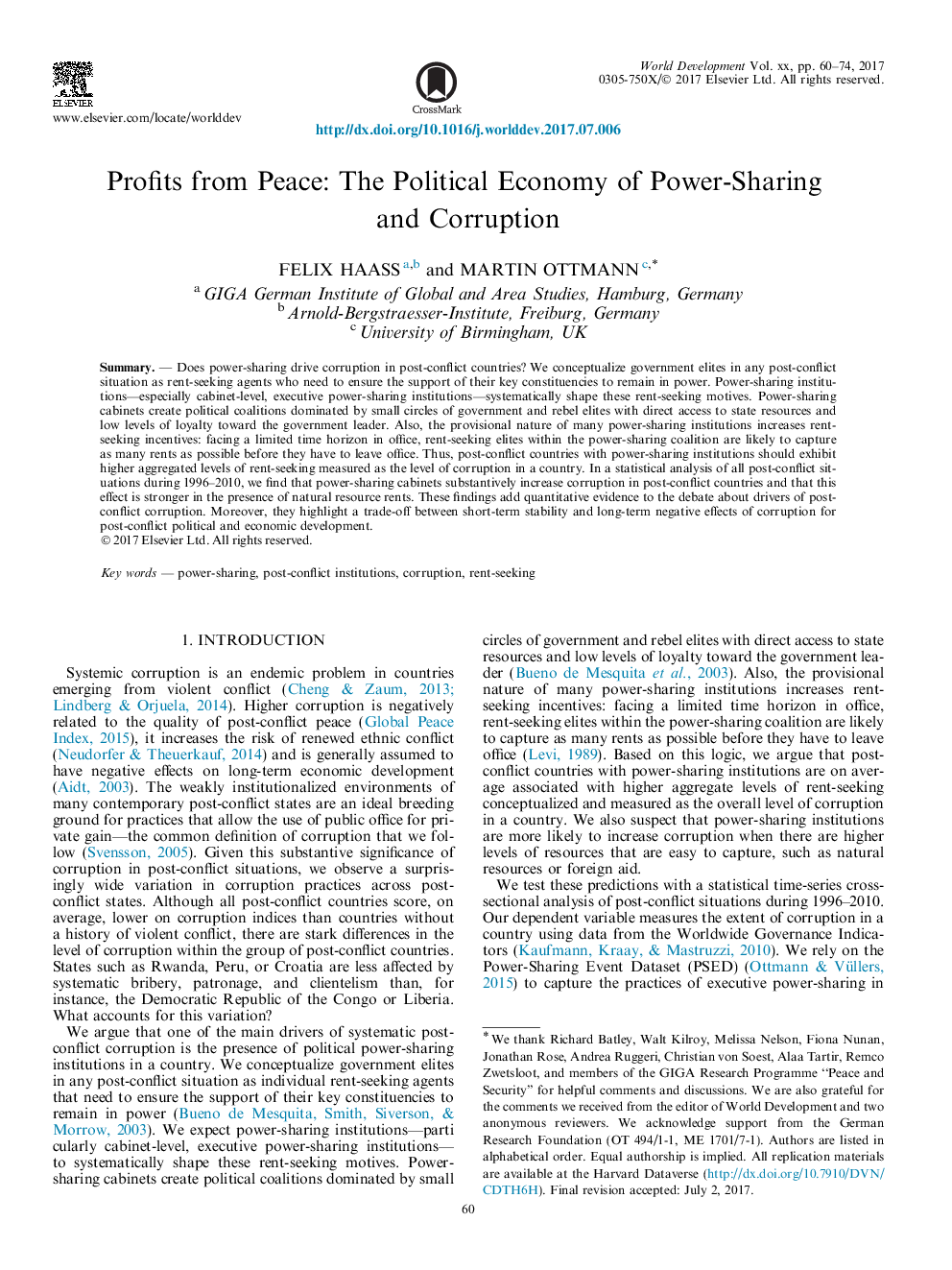ترجمه فارسی عنوان مقاله
سود از صلح: اقتصاد سیاسی از قدرت اشتراک و فساد
عنوان انگلیسی
Profits from Peace: The Political Economy of Power-Sharing and Corruption
| کد مقاله | سال انتشار | تعداد صفحات مقاله انگلیسی |
|---|---|---|
| 86402 | 2017 | 15 صفحه PDF |
منبع

Publisher : Elsevier - Science Direct (الزویر - ساینس دایرکت)
Journal : World Development, Volume 99, November 2017, Pages 60-74
ترجمه کلمات کلیدی
تقسیم قدرت، موسسات پس از جنگ، فساد، اجاره یابی،
کلمات کلیدی انگلیسی
power-sharing; post-conflict institutions; corruption; rent-seeking;

